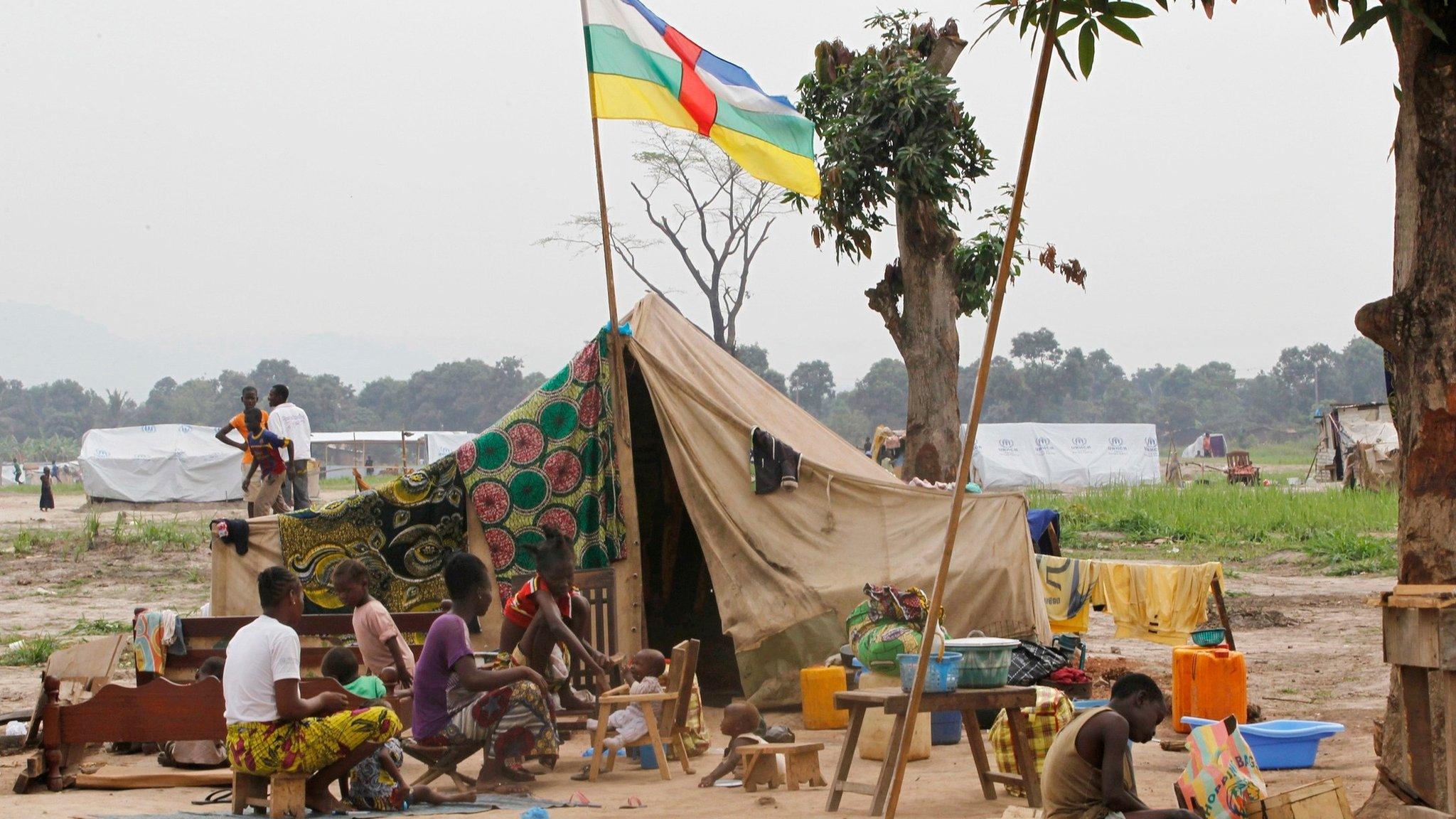Central African Republic: War crimes trial of two ex-militia leaders starts
- Published
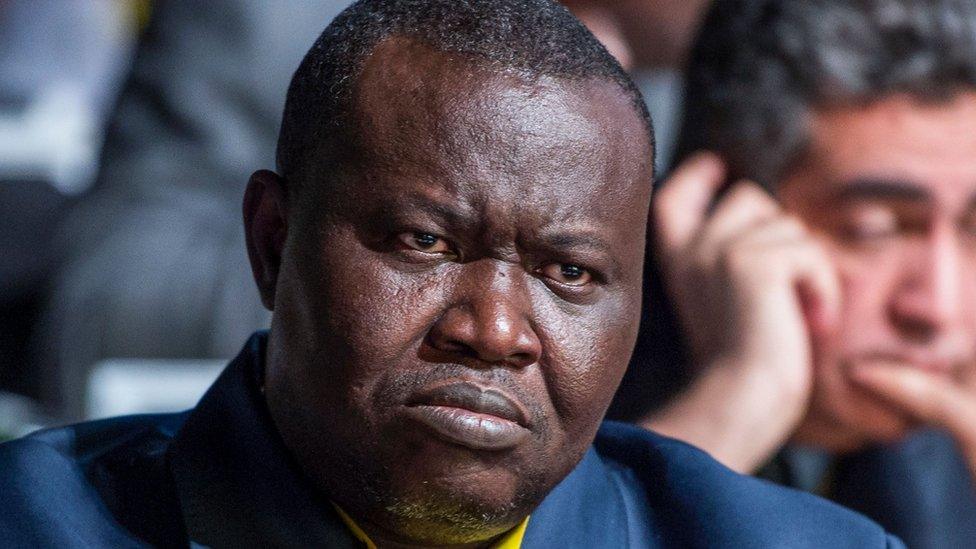
Patrice-Edouard Ngaïssona described himself as the political co-ordinator of the anti-Balaka
The former head of the Central African Republic (CAR) football federation, Patrice-Edouard Ngaïssona, has pleaded not guilty to war crimes charges at the International Criminal Court (ICC).
Mr Ngaïssona, who led a mainly Christian anti-Balaka group, also denied crimes against humanity charges.
He and Alfred Yekatom are accused of co-ordinating attacks against the country's Muslim population in 2013-14.
Violence continues to grip CAR, two-thirds of which is in rebel hands.
The former French colony was plunged into turmoil in 2013 when predominately Muslim rebels from the Séléka group seized power in the majority Christian country.
A band of mostly Christian militias, called the anti-Balaka, rose up to counter Séléka after then-President François Bozizé was ousted.
Although Mr Bozizé is not on trial, the prosecution alleged that after he was ousted in March 2013, he and his inner circle started "organising their resistance" from neighbouring Cameroon "to ensure his return to power at whatever cost".
Mr Bozizé, who returned to CAR in 2019, has not yet commented on the allegation.
What is the case against the accused?
The pair are accused of numerous crimes, including murder, torture, and the enlisting of children as soldiers.
The prosecution set out the alleged system of command, saying Mr Ngaïssona provided funds and instructions to anti-Balaka groups in 2013 and 2014.
Mr Yekatom, nicknamed Rambo, was a commander who allegedly led fighters into Bangui on 5 December 2013 where civilians were slaughtered.
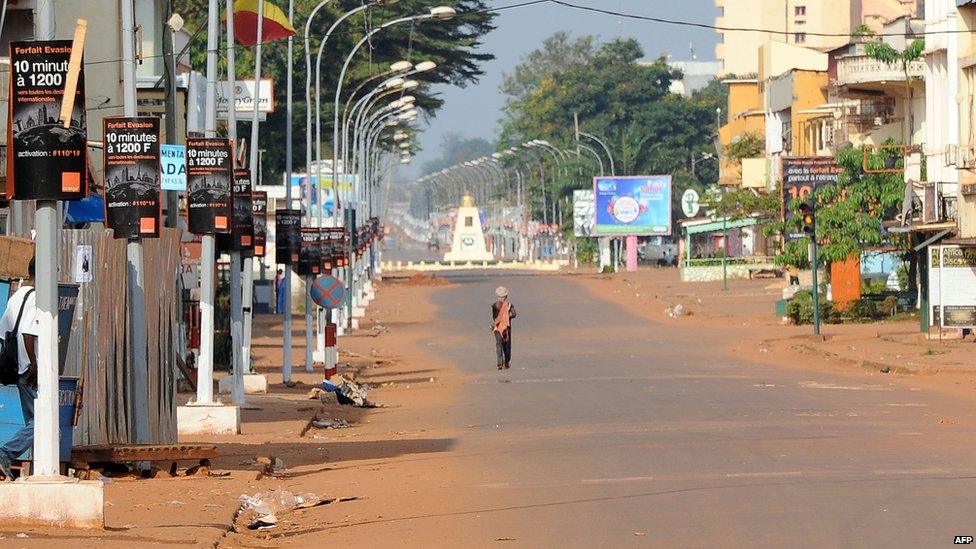
Many people died in the violence and thousands fled
The prosecution said the pair's strategy was to make all Muslims their target, not just Séléka combatants, as so-called "enemies of the nation".
Mr Yekatom authorised his fighters to attack Muslim civilians, including to slit throats, cut off ears and bury people alive, the prosecution alleged.
Asked to enter a plea at the start of the trial, both men replied that they reject all the charges.
Media reports at the time indicates at least 1,000 people were killed in tit-for-tat clashes in Bangui in December 2013, and half the city's population fled in that month alone.
Who is Patrice-Edouard Ngaïssona?
He was the self-declared political co-ordinator of anti-Balaka forces.
Mr Ngaïssona was barred from running for CAR president in 2015 because of his alleged role in the atrocities.
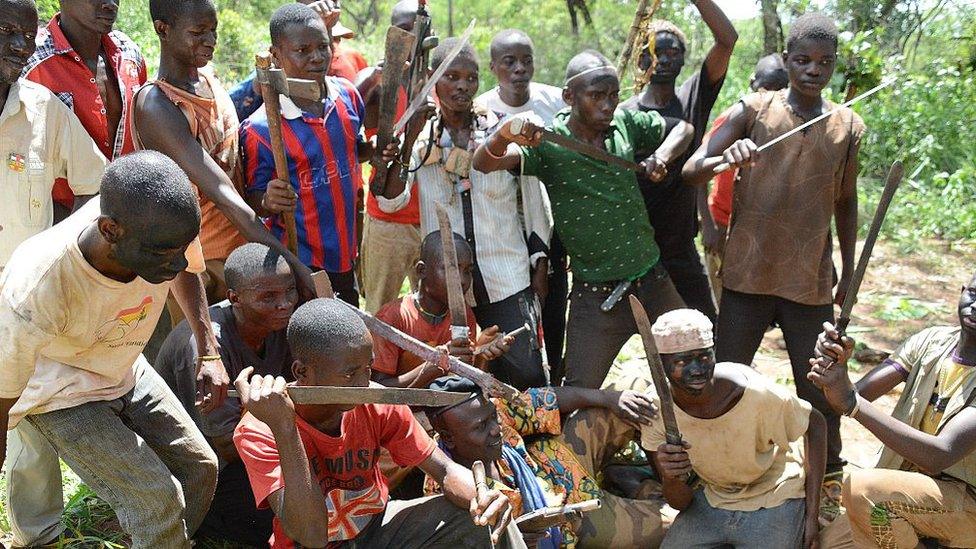
The ICC accuses Mr Ngaïssona of using young fighters in the conflict
He is a former head of the CAR's football federation and briefly served as sports minister before being elected to the Confederation of African Football (Caf) in February 2018.
His appointment was criticised by several human rights groups.
"If the allegations were true, I wouldn't be here today," he told AFP news agency at the time. "[I don't] mix politics and sport - everything I've done has been for the good of my country."
French authorities arrested him in December 2018 and he was transferred to the ICC in January 2019.
Who is Alfred Yekatom?
Mr Yekatom was elected as an MP in 2016, despite being subject to UN sanctions.
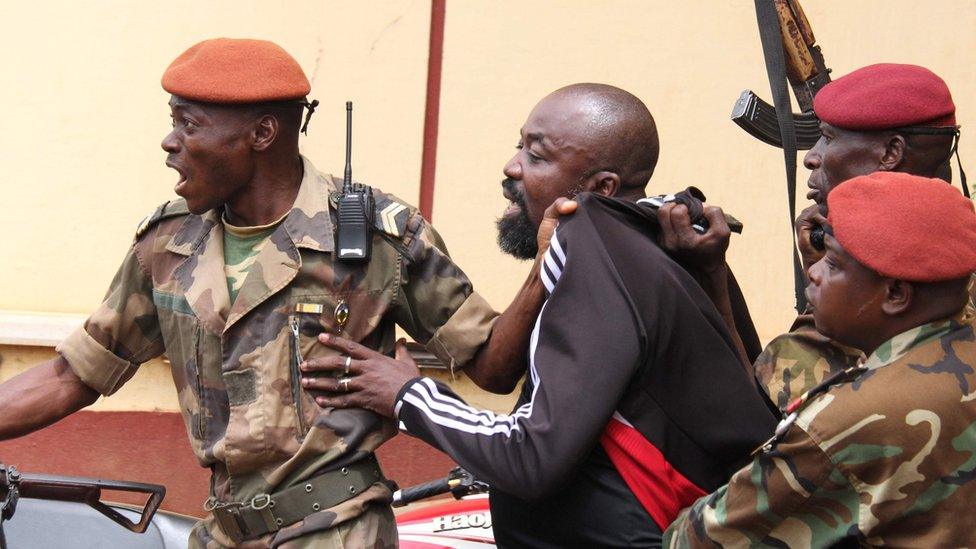
Mr Yekatom (C) was arrested in 2018 by members of the armed services
He was arrested in October 2018 after he fired a gun in parliament, then ran away, after a row with a fellow MP.
His extradition to the ICC was the first from CAR.
The International Federation for Human Rights (known by its French acronym FIDH) said it signalled the authorities there were committed to fighting impunity.
What's happening in CAR now?
Violence continues to beset CAR despite the arrest of the two former prominent militia leaders.
Central African Republic: A country under siege
Mr Bozizé is also accused of being behind the latest crisis in the mineral-rich country after the constitutional court blocked him from running in the December election.
A coalition of rebels - reportedly allied to him - have taken vast swathes of the country and threaten to enter the capital Bangui.
Mr Bozizé has denied he has links with the fighters, who refuse to accept President Faustin-Archange Touadéra won an election they boycotted. They want a rerun.
At least 12,000 UN peacekeepers backed by Rwandan, Russian and French soldiers are supporting government forces but their presence has not stopped thousands of civilians from fleeing the country.
At the start of February, the CAR government extended a state of emergency.
The UN refugee agency said in January about 92,000 refugees had fled to the Democratic Republic of Congo and more than 13,000 had crossed into Cameroon, Chad and Congo-Brazzaville. It said the rest were displaced within the CAR.
Related topics
- Published7 January 2021
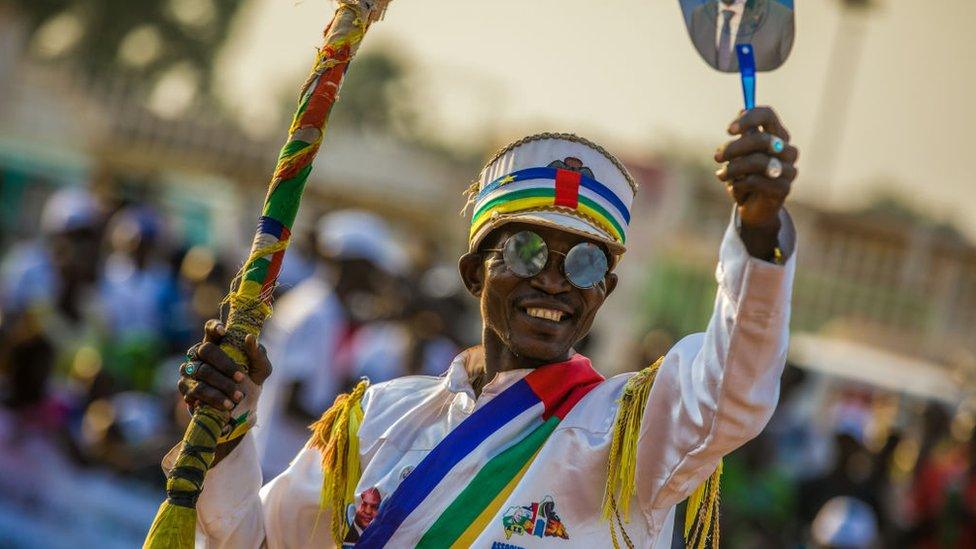
- Published18 October 2018
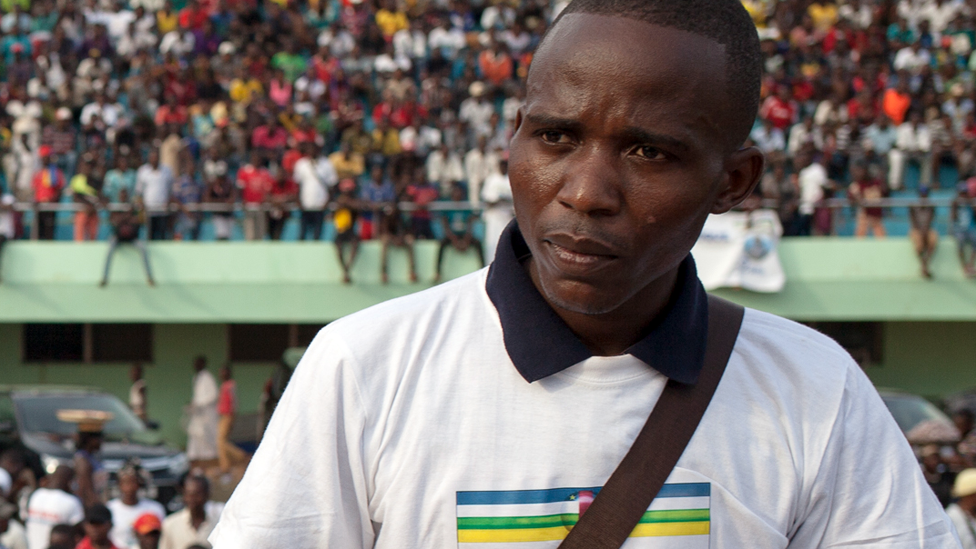
- Published20 February 2014
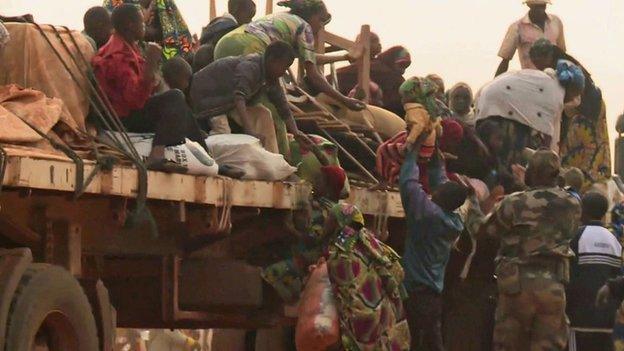
- Published22 August 2023
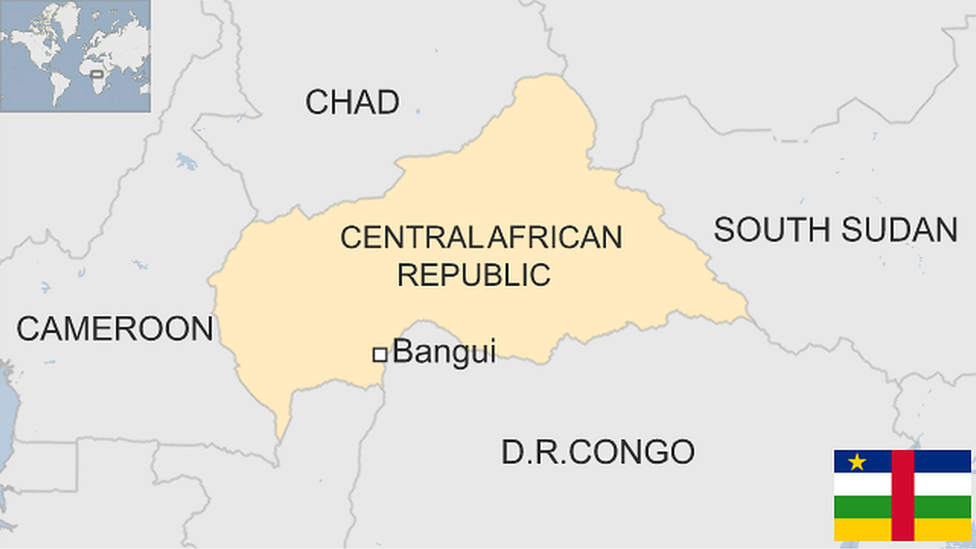
- Published12 February 2014
